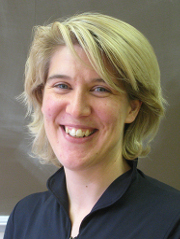This month, we discuss gender and medieval mysticism with Christina Van Dyke, professor of philosophy, director of gender studies, and executive director of the Society of Christian Philosophers at Calvin College. Click here to listen to our conversation.
 How might the notion of God to have meaning to us? God today can increasingly seem to us a mere historical phenomenon–a subject of past peoples’ energy, but presently only a subject of professors’ study. But of course, in the middle ages, God was both a subject of professorial study and popular energy. Scholars reasoned knowledge about God, but God meant more to many more people beyond the academy. To them, God was more than a notion.
How might the notion of God to have meaning to us? God today can increasingly seem to us a mere historical phenomenon–a subject of past peoples’ energy, but presently only a subject of professors’ study. But of course, in the middle ages, God was both a subject of professorial study and popular energy. Scholars reasoned knowledge about God, but God meant more to many more people beyond the academy. To them, God was more than a notion.
Indeed, to some of them, in mystical traditions, God could be everything. For, they sought not only knowledge of God, but union with God. In particular, some women wanted to know God, but were kept out of the academy. So they looked to mystical experiences to not only understand the divine, but to merge with it. This in turn lent them singular authority for their day.
This still leaves the question: Just what is union with God? Selfless merging with the infinite? Sensory experience of Christ? And how do we interpret these divergent mysticisms’ philosophical implications? Our guest Christina Van Dyke can’t unite us with God in this podcast, but she can help us consider these questions. So join us!
Dominic Surya
Leave a Reply